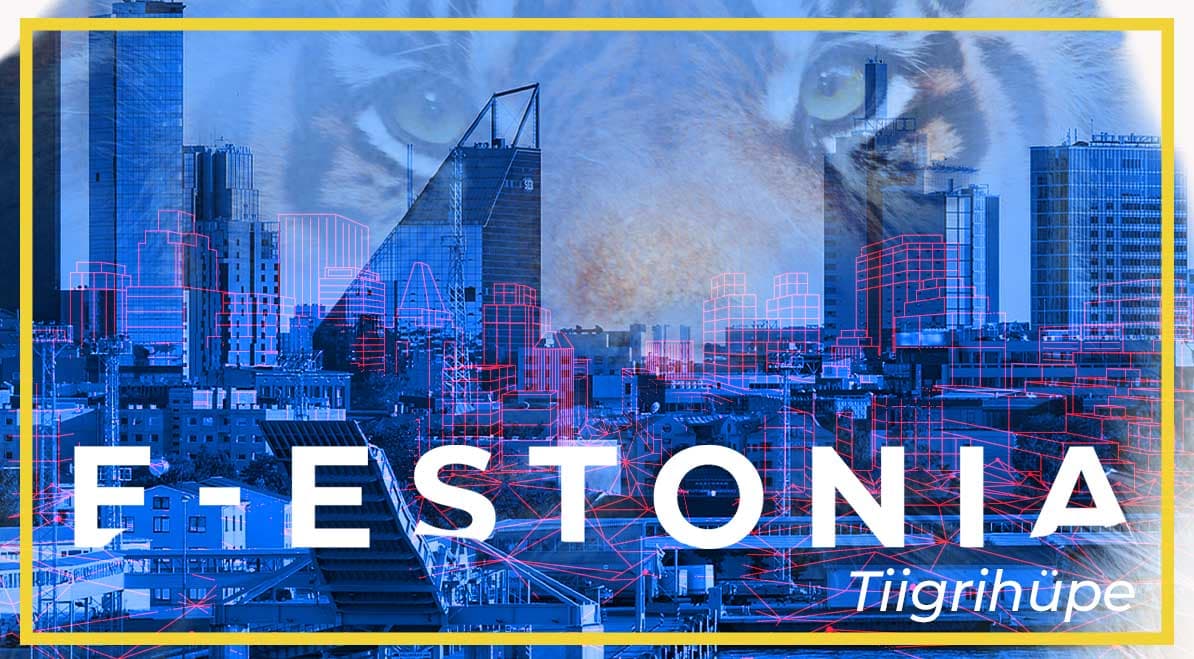‘Get out of your garage and meet like-minded start-up people’ urges the Palo Alto Club. The venue is not a hipster hangout in the famous Silicon Valley city that the likes of Tesla and Hewlett-Packard call home. Instead this is a ‘membership-based type of creative hub’ located in Tallinn, Estonia.
This small Baltic country, which gained independence from the Soviet Union almost three decades ago, has cultivated a global reputation for breeding wave after wave of fintech success stories. Brand Estonia is carefully curated and its home-grown disruptors a source of local pride.
Fintech startups with local roots include TransferWise and Monese (both have development centres in Estonia), while Skype (developed using Estonian brainpower) and Tallinn-headquartered transport platform Bolt are among the other tech-based companies whose names are loudly hailed by Estonia enthusiasts.
The country currently has more than 1,000 tech-based businesses under 10 years old, with 125 self-defining as fintechs, according to a live database run by Startup Estonia. The latest analysis suggests that overall numbers, and revenue, grew during 2020’s first quarter (the impact of coronavirus needs time to process but will likely be significant).
The story of Estonia’s success is increasingly widely told: #DisruptionBanking a couple of years ago provided an overview of how the country, whose population is about 1.3 million, ‘led the charge of an e-revolution’.
‘Tiigrihüpe’ – Estonian for ‘Tiger Leap’ – is seen as a significant foundation: heavy state investment in computing, including teaching all children how to code, and internet access as a fundamental right. The ‘e-Estonia’ project has shifted 99 per cent of state services, from doctors’ prescriptions to voting and tax payment, online. The ‘e-Residency’ scheme, which allows non-Estonians access to services such as company formation, banking, payment processing and taxation, has been well promoted.
In short, the Estonian government has for years known that it’s been onto a winner with digital initiatives and keeps rolling them out – e-nergetically e-volving its e-formula.
In the start-up world, Veriff, which employs about 230 people in Tallinn and New York, is seen as among the cream of Estonia’s current crop of bright new(ish) businesses. Founded in 2015, Veriff is an Artificial Intelligence-driven company that protects businesses and their customers from online ID fraud. Its co-founder and COO, Janer Gorohhov, tells #DisruptionBanking: “The Estonian market is a great testing ground for new digital services and products, including fintech solutions. People here are tech savvy, ready to test new solutions. It’s probably one of the reasons why we have more than 1,000 start-ups. It’s a great place to test your product and then scale.”
🇪🇪 10 promising Estonian #startups to watch in 2020 🇪🇪 Having waited in the sidelines, Estonia is finding space in the spotlight, due to🦄's like @boltapp, its close-knit community & simple regulations. Here are our top teams to watch in 2020 & beyond👉https://t.co/qN6oqdLEiS pic.twitter.com/8tAYKcQLlG
— EU-Startups (@EU_Startups) February 17, 2020
Speak to local business leaders and it’s rarely long before Skype (North American HQ: Palo Alto) is mentioned. Gorohhov is no different, referring to the company when asked to what extent the growth of Estonia’s fintech scene has been ‘home grown’ and to what extent it’s dependent on international capital. “It’s the combination of the two,” he says. “The ideas and technology are born here and the seed money for start-ups also comes from here. The success of the Estonian tech scene started with Skype in the early 2000s. But today, lots of former Skype employees have built their own start-ups with the knowledge, experience and money they received from Skype. However, when start-ups want to scale fast and be competitive on a global scale, they need access to international capital.”
TransferWise, the London-headquartered online money transfer service, is cited by Gorohhov as inspirational (“Veriff is proud to provide a verification service to them”). He says: “Although TransferWise, like many other fintechs, started off in Estonia, they’ve always focused on the global market, expanding their services across the world and implementing international standards.”
Heiki Pant has worked for the Estonian Investment Agency for 11 years. Speaking to #DisruptionBanking from Tallinn about the country’s recipe for success he points to the enduring impact of Tiigrihüpe but, like Gorohhov, also points to the importance of the global economy. “Estonia is an open economy and we are influenced by what is happening in a macroeconomic sense,” he says. “What is homegrown is the desire people have to succeed on the back of success stories so far, such as Skype, Bolt, Veriff and so on. To do so we need to engage with global talent both digitally and physically. Venture capitalists trust the local ecosystem.”
Estonian entrepreneurs and developers are pre-programmed to think internationally. “The Estonian domestic market is micro-sized. So, we always have to think of the overseas market,” says Pant. “The standard route is to try to expand to Scandinavia first, and then push further to markets such as Germany, the UK and Ireland.”
Estonia has been a member of the European Union (EU) since 2004 – an obviously significant development in many aspects for a small ex-Soviet state – and is widely seen to have punched above its weight ever since at EU level, particularly in digital policy. Asked what lessons other countries could learn from Estonia’s fintech growth, Veriff’s Gorohhov says: “Too much regulation kills innovation – businesses need to have enough freedom and independence to make critical decisions. And the [company] founders need to have hunger because hunger leads to action, action leads to success.”
Asked the same question, Pant focuses on Estonia’s digital leadership. “Digitalisation is something that requires change and naturally there will be a lot of opposition to it,” he says. “But it creates opportunities and makes products more viable. For example, digitalisation of manufacturing helps companies to compete on international markets: the sawmilling industry and timber-frame house production is a good example from Estonia where the industry is very digitalised to compete internationally.”
But with sustained international growth and plaudits comes scrutiny, and it’s not been completely plain sailing for Brand Estonia. Concerns have mounted in recent years about money-laundering and just a fortnight ago the country announced that about 500 cryptocurrency firms’ licences (about 30 per cent of the total) had been revoked as part of an attempt to ‘tidy up’ the market. Further crypto clampdowns are likely, reports suggest.
Meanwhile, Estonia’s Baltic neighbours Lithuania (which has twice the population of Estonia) and Latvia are each more than worthy of standalone analysis. The former, in particular, has also forged a reputation as a fintech hotspot.
“We have been lucky to have had a bit of a jump-start from within the Baltics but Latvia and Lithuania are catching up very fast. Lithuania has a strong offering in shared services and Latvia has a thriving start-up scene,” reflects Pant.
Nonetheless, there seems no end to Estonia’s own fintech conveyer belt, with companies in fields ranging from mobile payments to investment (and crypto) among those hotly tipped this year.
Meanwhile the government continues to drive digital innovation: the country has been testing one of the world’s first ‘digital immunity passports’ to enable a safer return to workplaces following the coronavirus lockdown.
Estonia has also this month approved what is being referred to as a ‘digital nomad visa’. This will allow people to live in Estonia for up to a year while working for employers or clients outside the country: a development Sifted described as ‘ushering a new era of work – one where knowledge workers aren’t tied to one desk or even one continent’.
Sounds ideal for the Palo Alto Club.
Author: Ian Hall
#Crypto #DigitalImmunityPassports #DigitalNomadVisa #Fintech #eResidency #Estonia #Baltic #Skype #Transferwise #Bolt
















One Response